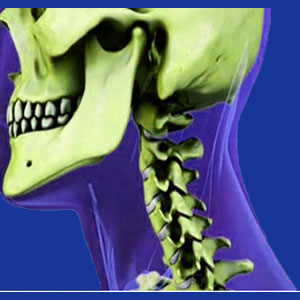
Congenital neck pain may be a consequence of some spinal, muscular or other type of structural abnormality or disease that developed prior to birth. Congenital conditions may or may not be identified prior to or at birth. In fact, some congenital spinal issues may not be identified until the person has reached full adulthood.
What type of congenital conditions can cause neck pain? Can a congenital defect be corrected? How can I prevent a congenital condition from being passed down to my own children? These questions are common asked by people who are affected by pain caused by a pre-birth issue.
This dialog focuses on congenital cervical spinal pain conditions of various types. If you are looking for information on issues that exist prior to birth which may cause neck symptoms, then this is the right discussion for you.
Spinal Congenital Neck Pain
Spinal abnormalities might exist prior to birth and can be related to genetics, pregnancy problems, birth mother lifestyle choices or idiopathic factors. Some of the most common spinal abnormalities in the neck include all of the following conditions:
Spinal bones and/or discs might be missing or malformed.
Spinal nerves or the actual spinal cord may be malformed or dysfunctional.
Atypical spinal curvatures may be present, including scoliosis, kyphosis and/or lordosis.
Spondylolisthesis might occur in the cervical spine prior to birth.
Spina bifida may affect the cervical spine.
Syringomyelia or hydromyelia may exist.
Babies might also be born seemingly fine, but with spinal issues that may present later in life, such as:
Tendency of discs to degenerate or herniated prematurely or severely.
Deficient vertebral structure that may result in fracture or listhesis later in life.
Low bone density or porosity issues.
There are many other less common spinal defects that might have a congenital origin or contributor.
Congenital Muscular Neck Pain
The soft tissues, such as muscles, ligaments and tendons can also be affected by various congenital issues. These conditions may result in visual and/or functional abnormalities that may cause pain early in life or later in life, depending on many factors. Since the musculature of the neck is closely related to all the surrounding muscular groups, dysfunction may become regional or even systemic in some cases of severe congenital irregularities.
Muscular tissues may also be formed correctly, but may suffer from congenital disease that impairs their proper function. Disease might affect the soft tissues themselves or the nerves which innervate and mobilize them.
There are many, many possible conditions which fall under this category. To learn more about your specific diagnosis, you should consult with your doctor.
Congenital Neck Pain Solutions
Some congenital conditions can be easily corrected, while others are much more challenging. Unfortunately, some congenital issues can not be fixed, as the risk is too great or the technology to accomplish the task simply does not presently exist.
Some congenital issues must be addressed almost immediately in an infant in order to preserve their life and physical functionality. These emergency conditions are difficult to manage surgically, but all efforts should be made to give every baby a fighting chance in life whenever possible. Other congenital issues are best saved to be addressed later in life when the child is older and stronger.
Parents often wonder about the possibility of passing down congenital defects through inherited genetic material. This is certainly possible,, but not universal by any means. Some congenital defects and abnormalities are indeed linked to heredity. Others are linked to lifestyle circumstances of the mother or occurrence which may happen to her during pregnancy. In order to know how a congenital condition might affect your own children, be sure to speak to your neurologist who can referral you to a gene specialist who may be able to provide specific risks for hereditary transfer.





